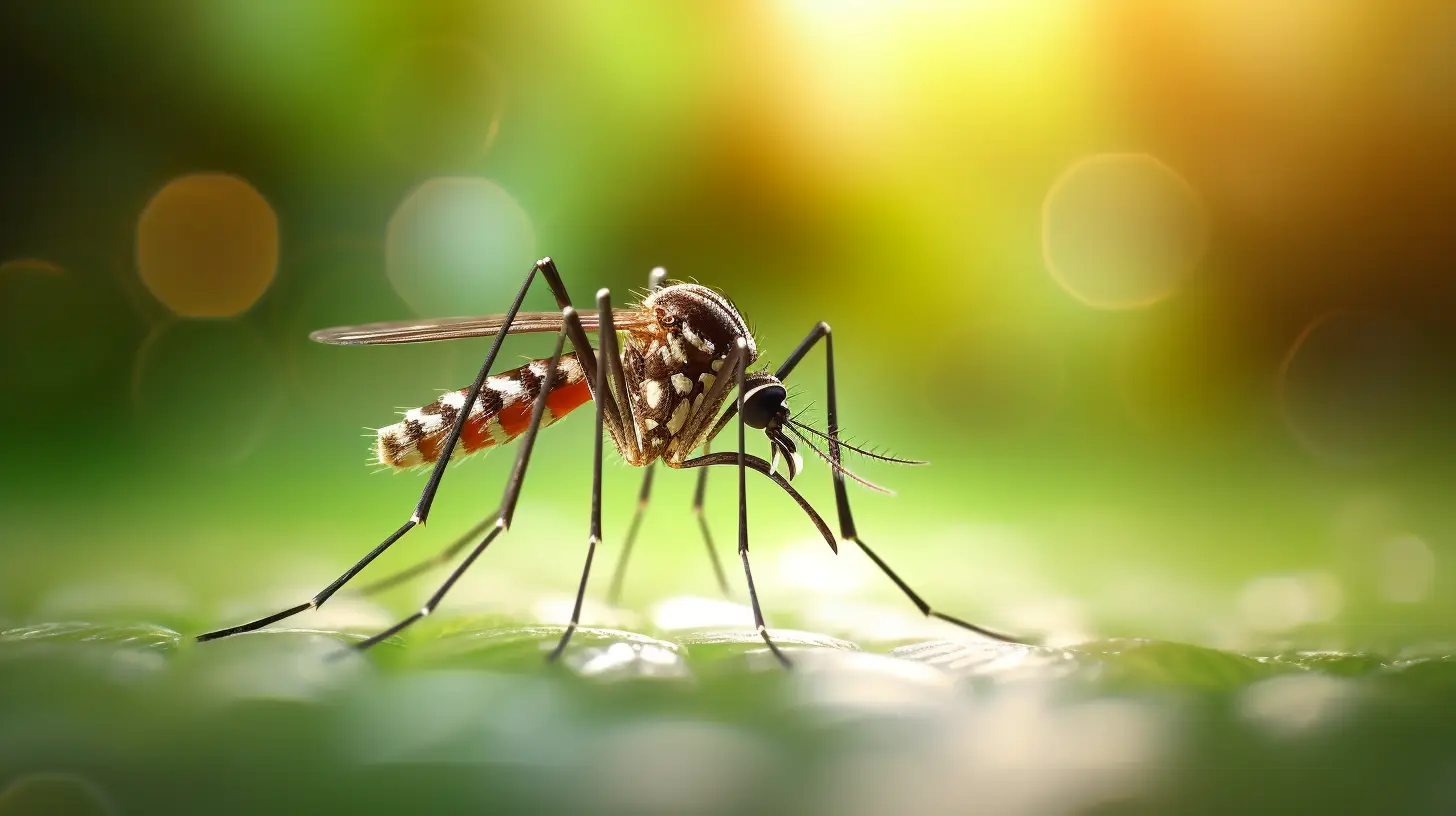
Table of Contents
Ever found yourself enjoying a beautiful day outdoors only to be interrupted by the worry of tick bites? You’re not alone. Ticks can be more than just a nuisance—they can carry diseases that pose serious health risks. While many turn to chemical repellents like DEET, there’s a growing interest in natural alternatives that are both and free from harsh chemicals.
Natural tick repellents use ingredients like essential oils from plants, offering a safer option for your skin and the environment. Imagine being able to protect yourself and your family with products that include lemongrass, cedar, peppermint, and thyme. This article will guide you through the benefits of natural tick repellents and how they can keep those pesky ticks at bay without compromising your health.
Key Takeaways
- Health and Safety Benefits: Natural tick repellents typically use essential oils, offering a safer alternative to chemical-based options like DEET. They reduce the risk of allergic reactions and skin irritation.
- Environmental Considerations: These repellents have a lower environmental impact, as essential oils biodegrade easily, minimizing ecological disruption compared to persistent chemicals.
- Variable Effectiveness: While some essential oils, like geranium and verbena, may match DEET’s effectiveness, others offer varying levels of protection, requiring more frequent reapplication.
- Application and Usage: Natural repellents need to be applied to skin, clothing, and gear and may require reapplication every few hours, especially if you get wet.
- Additional Preventive Measures: Combining natural tick repellents with other methods, such as wearing protective clothing and performing regular tick checks, enhances overall protection.
- Popular Natural Repellents: Key options include oil of lemon eucalyptus, nootkatone, cedarwood oil, citronella, geranium oil, and other essential oils like eucalyptus, lemongrass, and peppermint.
Should You Use Natural Tick Repellents?
Using natural tick repellents offers several advantages compared to chemical-based alternatives. These repellents leverage essential oils from plants, creating a safer option for your skin and the environment.
Health and Safety Benefits
Natural tick repellents don’t contain harsh chemicals like DEET, picaridin, or permethrin. Essential oils, such as lemongrass, cedar, and peppermint, serve as the primary active ingredients. These plant-based ingredients are generally safer for prolonged skin contact, reducing the risk of allergic reactions or skin irritation.
Environmental Considerations
Natural tick repellents have a lower environmental impact. Chemicals like DEET can persist in water sources and soil, potentially harming wildlife and ecosystems. In contrast, essential oils biodegrade more easily, ensuring minimal ecological disruption.
Variable Effectiveness
The efficacy of natural tick repellents varies. Some, like geranium and verbena oils, match DEET’s effectiveness in certain studies, while others may offer less protection. If you live in or visit tick-prone areas frequently, you might need to reapply natural repellents more often.
Application and Usage
Using natural repellents involves applying them to your skin, clothing, and gear. You can also treat your lawn to reduce tick populations. Since essential oils can evaporate quicker than chemical repellents, reapplication is necessary after a few hours or if you get wet.
Practical Advice
Considering using natural tick repellents if you:
- Prefer avoiding synthetic chemicals
- Are concerned about skin safety
- Want to minimize environmental impact
But, for prolonged outdoor exposure, combining natural repellents with other preventive measures, like wearing protective clothing, may enhance your overall protection against ticks.
By making informed choices about repellent use, you can enjoy outdoor activities while effectively managing tick risks.
Six Natural Tick Repellents
Natural tick repellents offer a safer alternative to chemical-based solutions, using natural ingredients to keep ticks away. Here are six natural tick repellents for humans.
1. Oil of Lemon Eucalyptus
Oil of lemon eucalyptus is a common plant-based mosquito repellent, also for tick prevention according to the Pennsylvania State University College of Agricultural Sciences. While safer than many synthetic chemicals, it’s not recommended for children under 3 years old. You can find oil of lemon eucalyptus in various commercial insect repellent products, ensuring ease of application.
2. Nootkatone
Nootkatone is a naturally occurring component in grapefruit skin and Alaska yellow cedar trees. According to the CDC, this ingredient helps repel ticks, mosquitoes, and other insects. Though recently approved by the CDC and EPA, it may not yet be widely available in commercial tick repellents. Using natural repellents with grapefruit oil serves as an alternative until nootkatone products become more accessible.
3. Cedarwood Oil
Cedarwood oil, often used in soaps and perfumes, effectively repels ticks. A 2022 study found that cedarwood oil can repel hard tick nymphs as effectively as DEET. Its pleasant smell makes it a popular ingredient in many commercial tick sprays and insect repellents.
4. Citronella
Citronella is known for its strong scent, against mosquitoes and ticks. A 2017 study revealed that a mixture of citronella and creeping thyme showed higher repellency against dermacentor reticulatus ticks than when used individually. Citronella is a key ingredient in numerous commercial tick sprays and insect repellent products.
5. Geranium Oil
Geranium oil, including rose geranium, provides an means to repel ticks on humans and pets. A 2013 study found that geranium essential oils effectively repel lone star tick nymphs. You’ll find geranium oil in many commercial tick repellents and bug sprays.
6. Other Essential Oils
Many natural tick repellents use essential oils. According to Dr. Strachan, ticks are sensitive to these smells. Common essential oils in natural repellents include:
- Eucalyptus
- Lemon eucalyptus
- Lemongrass
- Peppermint
- Soybean
- Verbena
These oils can be found in commercial repellents or mixed with water in a spray bottle for DIY solutions. A general dilution rate is 5%, or about one ounce of water to 30 drops of essential oil. Testing on a small skin area ensures no adverse reactions before wider application.
Natural tick repellents, leveraging the power of essential oils, provide a safe, means to protect against ticks.
How to Avoid Tick Exposure
To effectively avoid tick exposure, follow these strategies and employ natural tick repellents.
Stay on Marked Trails
When hiking or camping, stay on marked trails. Avoid tall grass, brush, and wooded areas where ticks thrive. This reduces the likelihood of ticks latching onto your skin or clothing. Open areas are safer as ticks prefer shady, humid environments.
Wear Protective Clothing
Wear long-sleeved, light-colored clothing to spot ticks easily. Tuck shirts into pants and pants into socks to create a barrier. This prevents ticks from crawling under your clothes. Light colors make it easier to see ticks, reducing your exposure.
Use Natural Tick Repellents
Apply natural tick repellents like Oil of Lemon Eucalyptus (30-40% OLE) or Picaridin (10-20%) on skin and clothing. Permethrin (0.5%) can be used on clothing and gear to repel and kill ticks. Although natural repellents may require more frequent reapplication, they offer a safer alternative to chemical-based options.
Perform Tick Checks
After spending time outdoors, check your body, clothing, and pets for ticks. Focus on hidden areas like armpits, groin, and scalp. Remove any ticks promptly with fine-tipped tweezers to reduce the risk of disease transmission.
Maintain a Tick-Free Environment
Keep your yard tick-free by maintaining short grass, removing leaf litter, and creating barriers with wood chips or gravel. Discourage deer and other wildlife from entering your yard as they can carry ticks. Plant tick-repellent vegetation like lavender or marigolds around your garden.
Use Natural Tick Control for Pets
Discuss natural tick control options with your veterinarian. Essential oils like cedarwood and lemon eucalyptus can repel ticks. Ensure these are safe and appropriately used for your pets. Regularly check pets for ticks, especially after outdoor activities.
Minimize Exposure in Homes
Keep ticks out of your home by inspecting your gear and pets before entry. Wash clothes in hot water and tumble dry on high heat to kill any ticks. Clean and vacuum living areas regularly to remove any stray ticks.
Following these preventive measures helps you enjoy outdoor activities while reducing the risk of tick exposure. Use natural tick repellents and stay vigilant to keep both yourself and your pets safe.
Tick Bite Treatment
If you do get bitten by a tick even though your best efforts, it’s crucial to remove it promptly and safely. Use fine-tipped tweezers to grasp the tick as close to your skin’s surface as possible, then pull upward with steady pressure. After removal, clean the bite area and your hands with rubbing alcohol or soap and water. Keep an eye on the bite for signs of infection or a rash.
Natural tick repellents not only protect you and your pets but also contribute to a healthier environment. By incorporating these methods into your routine, you can enjoy outdoor activities with peace of mind. Remember, consistent application and preventive measures are key to minimizing tick exposure. Stay vigilant and make natural tick repellents a part of your everyday life.
Frequently Asked Questions (FAQs)
What attracts ticks to your body?
Ticks are attracted to carbon dioxide and sweat. They are sensitive to the CO2 you exhale and your body heat, as well as lactic acid from sweating. While these factors can’t be controlled, protective measures can reduce tick exposure.
Does Vicks Vapor Rub repel ticks?
Yes, Vicks VapoRub can repel ticks. The smell of menthol and camphor in the ointment effectively repels ticks when applied to skin, clothing, shoes, and outdoor gear.
What time of day are ticks most active?
Ticks can be active year-round. Activity varies by species, with some preferring cooler, humid hours of early morning and evenings, while others are more active at midday when it’s hotter and drier.
What kills ticks permanently in bed?
Salt can kill tick larvae and eggs by dehydrating them. Sprinkle salt over floors and furniture at night and vacuum it up in the morning to kill ticks in your home.
What can I put out to keep ticks away?
Planting tick-repellent plants, such as lavender, rosemary, and marigolds, around your yard’s perimeter can deter ticks. Additionally, chickens can help by pecking away at ticks if you have the space for them.









